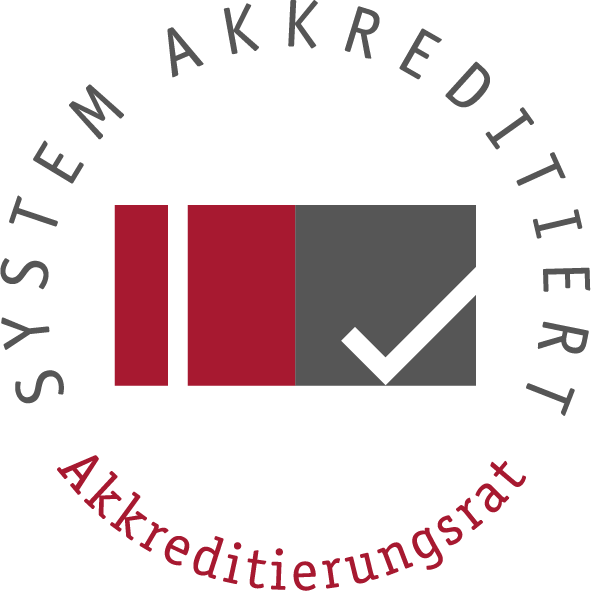Materials and Processes (M.Eng.)
-
-
Discontinued programme
-
'Materials and Processes' is a conversion Master's programme that is run in cooperation with Steinbeis University Berlin (SHB). The part-time programme for working professionals has a practical focus and is applications-driven.
The 'Materials and Processes' Master's programme prepares students from industry for challenging research and development activities. During the four-semester programme, students are introduced to the methods and techniques used in scientific research and become acquainted with questions of current research interest in the fields of materials science, materials engineering and process engineering. They benefit from the broad range of teaching modules and research topics offered at Saarland University and the wide variety of laboratory equipment and instrumentation available on campus. Having acquired a thorough understanding of the underlying science, graduates from the programme are in an excellent position to use their problem-solving skills for real-world practical challenges.
Please note: This study programme is being phased out. No more students will be admitted to the first semester.
Many of the companies whose employees graduate from this programme develop advanced engineering materials for industrial applications. In many cases, however, these companies do not have their own product development department or the highly specialized lab equipment required. These companies profit in more than one way from the resulting knowledge and technology transfer. Members of their staff not only receive advanced level training, they also solve a materials engineering problem for their company during their Master's degree. During this time they receive support from materials scientists at Saarland University. This close collaborative approach helps to ensure a faster transition from research results to marketable products.
The M.Sc. programme is a conversion programme based on the 'project-to-skills' approach developed at Steinbeis University Berlin. Throughout the course of the programme students undertake transfer projects, project assignments and the final Master's thesis project in which they work on projects agreed with the participating companies. The necessary theoretical and methodological knowledge is acquired during the seminar phases of the programme. This ensures that the companies receive genuine practical benefits from the programme through the continuous transfer of up-to-date, subject-specific content and the latest research knowledge.
Der Studiengang umfasst 120 Credit Points (CP). Davon entfallen 30 CP auf die Masterarbeit. Die Regelstudienzeit beträgt vier Semester. Nach Abschluss des Studiums erhalten die Absolventen den Titel "Master of Engineering" (M.Eng.).
Das Studium wird berufsbegleitend und als Präsenzstudium durchgeführt. Studierende müssen während der Dauer des Studiums in einem Unternehmen oder einer anderen Organisation tätig sein. Sämtliche Kurse werden an der Universität des Saarlandes angeboten.
Die Kurse werden an etwa 17 Wochenenden pro Jahr freitags und samstags vor- und nachmittags angeboten. Jede Vorlesung besteht aus vier Präsenztagen, ergänzt durch E-Learning-Materialien, die der selbständigen Vor- und Nachbereitung dienen. Die Studierenden müssen den Stoff in eigener Regie lernen und vertiefen.
Die genauen Inhalte der Module entnehmen Sie bitte der Studienordnung. Die Kosten werden in der Regel vom Unternehmen bzw. von der Organisation übernommen.
Was ist das Projekt-Kompetenz-Studium?
Ein Projekt in Form einer konkreten Problemstellung ist das wichtigste Element für die Entwicklung von Mitarbeiterkompetenzen in einem Unternehmen. Das Projekt-Kompetenz-Konzept wendet diese Erkenntnis auf die Ausbildung von Studierenden an: Während ihres Studiums bearbeiten sie in Kooperation mit einem Unternehmen und idealerweise am Arbeitsplatz vor Ort ihre Projekte.
Im Rahmen dieser akademisch betreuten Projekte entwickeln die Studierenden die notwendigen Kompetenzen, um das erworbene Wissen erfolgreich in der Praxis umzusetzen. Gleichzeitig garantieren die Projekte, dass über die gesamte Studiendauer die individuellen Interessen und Ziele der Studierenden verfolgt und gefördert werden. Auch die Unternehmen profitierten von diesem Modell: Ihre Mitarbeiter werden auf hohem Niveau weitergebildet und lösen nebenbei noch eine werkstofftechnische Fragestellung.
| Standard period of study | 4 semesters |
| Language of instruction | German |
| Tuition fees | €35.000 for the whole course of study |
| Semester fee | See current fee structure |
| Web page | Steinbeis-Transfer-Institut caMPlusQ |
Course adviser
Flavio Soldera
Phone: +49 681 302-70511
f.soldera(at)matsci.uni-sb.de
https://www.eusmat.net
EUSMAT office
Dr. phil. Claudia Heß
Phone: +49 681 302-70504
office(at)eusmat.net
https://www.eusmat.net
Central Student Advisory Service
Saarbrücken Campus
Building A4 4, Ground floor
Phone: +49 681 302-3513
studienberatung(at)uni-saarland.de
Central Student Advisory Service

Accredited study programmes
Saarland University was one of the first universities in Germany to achieve Quality Assurance Accreditation and has held the Accreditation Council's official quality mark continuously since 2012.
Quality management
